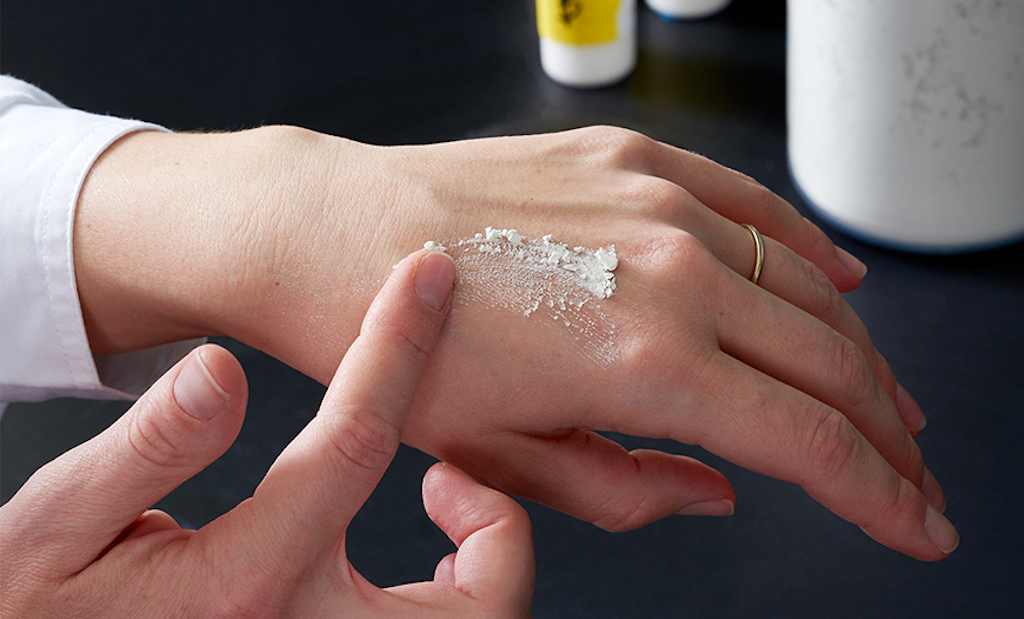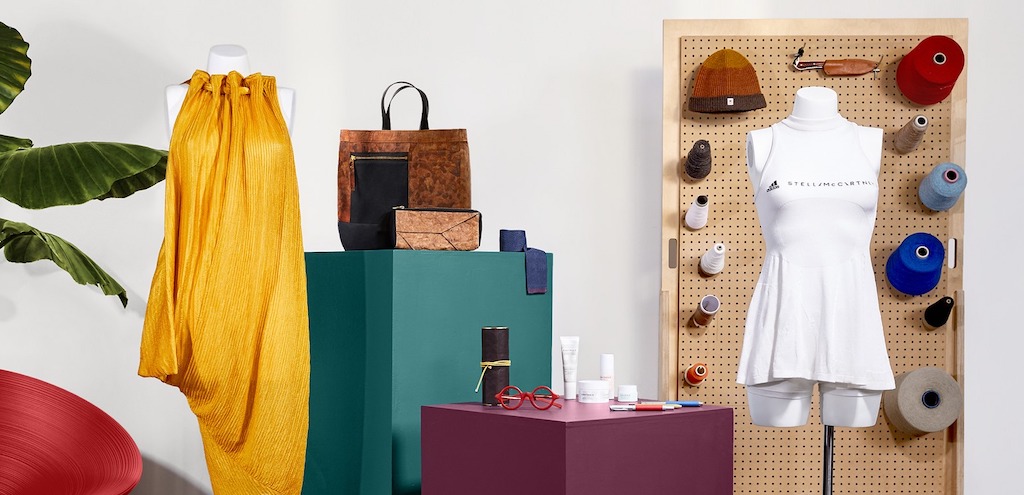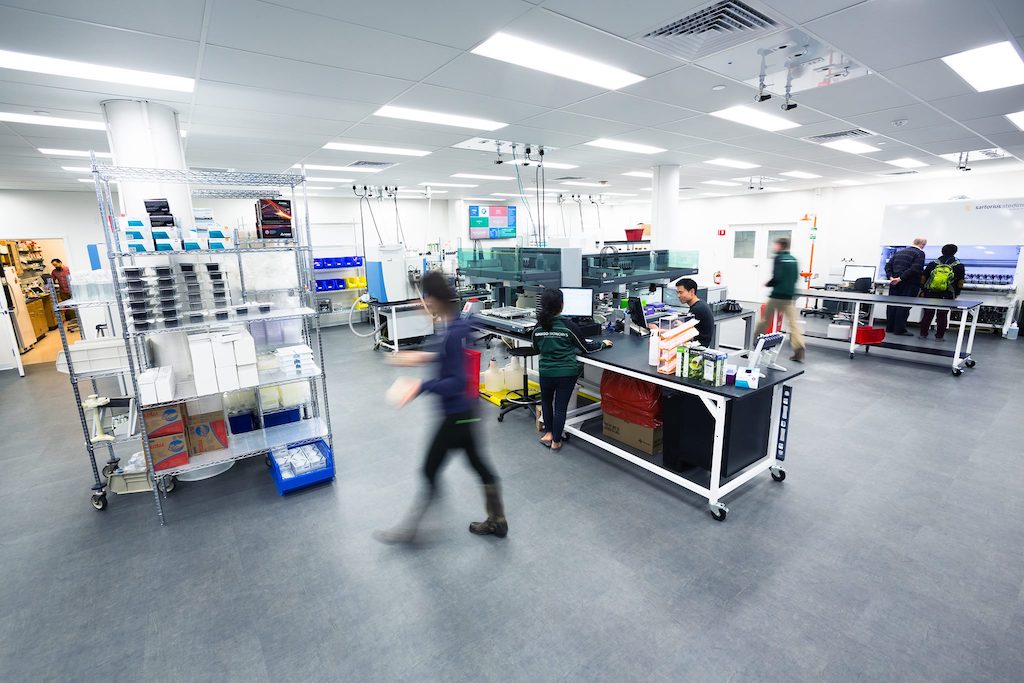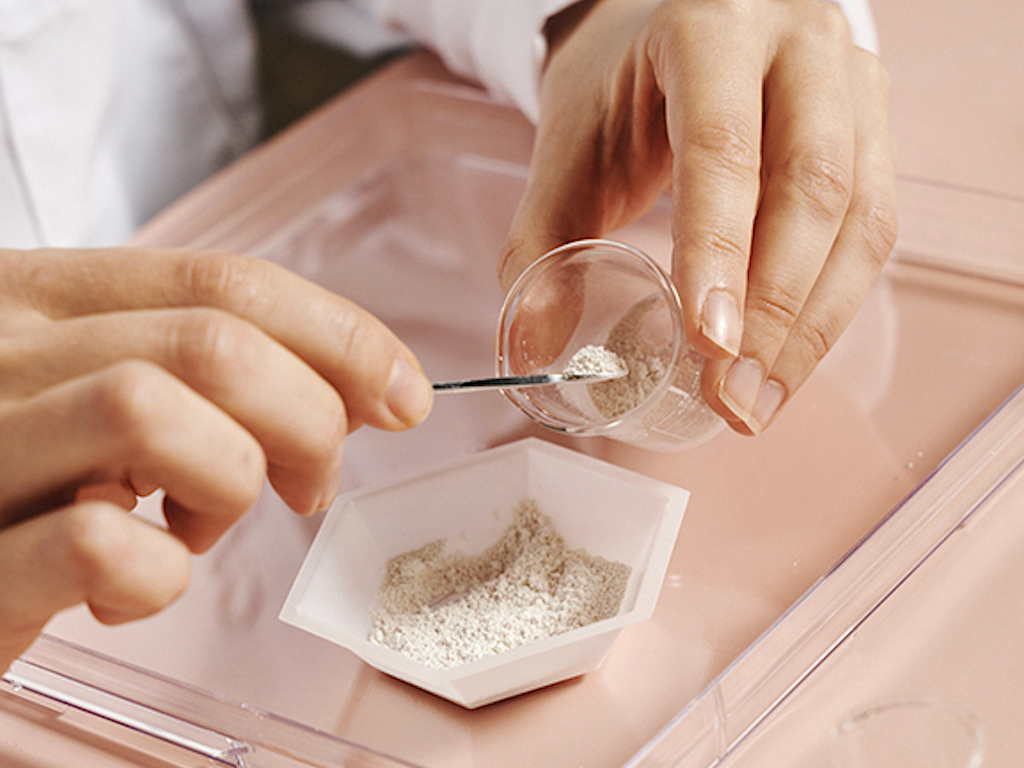3 Mins Read
Bolt Threads, the company making spider silk without spiders, and strain engineering firm Ginkgo Bioworks, are now working together to usher in the future of clean beauty. Tapping into Ginkgo’s genetic engineering expertise, Bolt Threads will be able to lower costs and improve the sustainability of its b-silk protein, which can replace synthetic ingredients in skin and personal care products.
Two leading names in the rising synbio industry, Bolt Threads and Ginkgo Bioworks, have partnered up to disrupt beauty and personal care. The collaboration will see Gingko, experts in cell programming, offer its platform to Bolt Threads, helping the firm improve the efficiency, sustainability and cost-effectiveness of its b-silk protein.
B-silk protein

Material innovation firm Bolt Threads might be better known for its mycelium vegan leather alternative Mylo, which has attracted backers like Adidas and Stella McCartney, but the company also makes spider silk without any spiders.
The California startup’s b-silk protein can provide the same strength and elasticity as real spider silk, but is bio-engineered and produced through fermentation technology. The protein is then isolated and purified into a soft powder, which can be applied in a wide array of beauty and personal care products to displace the use of synthetic ingredients.
It can replicate the softness of silk, while providing the skin environmental defense, making it a suitable replacement for ingredients like silicone in skincare, and keratin in hair products. It’s already being used in premium brands like Vegamour, but Bolt Threads wants to increase adoption by lowering costs—and that’s why it’s chosen to team up with Ginkgo.

Unlocking next-gen clean beauty
Bolt Threads says that utilising Ginkgo’s strain engineering platform will drastically improve the production efficiency of its b-silk protein. With scale and mass availability, the company hopes to be able to “unlock further applications” across the beauty and personal care industries.
“Ginkgo’s expertise in engineering biology will enable us to accelerate our work transforming the clean beauty and personal care industries with new, sustainable ingredients that have been previously inaccessible to consumers,” commented Bolt Threads co-founder and CSO David Breslauer.
“B-silk protein has the potential to bring new performance properties to everyday products while utilizing truly sustainable production processes at scale.”
Read: Report predicts synbio will reshape food and fashion with double-digit growth

Synbio in skincare
While the use of synbio is more mature in food applications, such as cell-cultured meat and precision fermentation dairy, there’s a rising cohort of startups now aiming to use the tech to disrupt other industries. Bolt Threads, for instance, is tackling unsustainable animal-based textiles and synthetics in beauty and personal care.
Avant Meats, a Hong Kong-based startup that is primarily focused on culturing seafood, has also developed synbio solutions for beauty. The company entered the skincare sector earlier this year, launching a cultivated marine protein peptide to displace the use of collagen in cosmeceutical products.
Another startup tackling collagen is Geltor, which uses microbial fermentation to develop its range of bio-identical animal-free ingredients for skincare, cosmetics and food.
Lead image courtesy of Bolt Threads.




